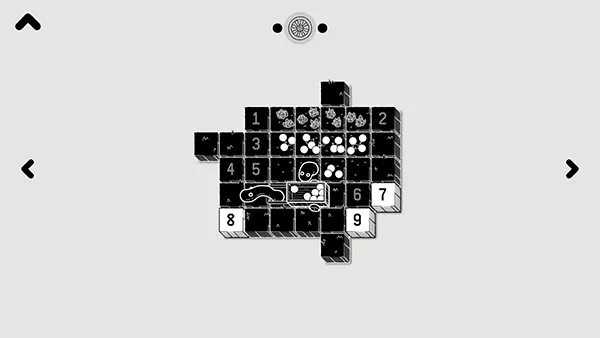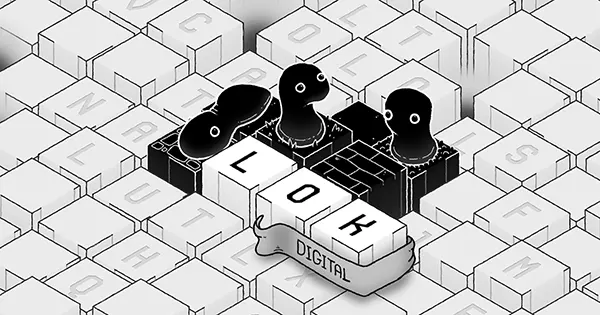In the constantly evolving world of independent video games, creativity often takes centre stage. “LOK Digital” stands out as a prime example of how absurdity and complexity can merge to craft a captivating gaming experience. Developed with an intent to challenge conventional thinking, this puzzle game invites players into a surreal landscape of enigmatic tasks and unconventional logic. With its unique design and brain-twisting challenges, “LOK Digital” captures the essence of modern absurdist art in an interactive format.
The Concept Behind “LOK Digital”
“LOK Digital” is not just another puzzle game; it represents a radical departure from traditional game design. Instead of providing straightforward instructions, the game offers abstract symbols, fragmented sounds, and disjointed visual cues. Players are forced to interpret the meaning behind these elements, often relying on intuition rather than clear logic. This approach transforms each level into a unique mental exercise, rewarding creativity and patience over conventional problem-solving skills.
The inspiration behind “LOK Digital” comes from the absurdist philosophy, where meaning is deliberately elusive. Much like the works of Samuel Beckett or Albert Camus, the game compels players to find purpose within confusion. This is not a game that hands you answers; it expects you to forge your own path through a labyrinth of abstract puzzles and cryptic feedback mechanisms.
Visually, “LOK Digital” embraces a minimalist yet chaotic aesthetic. The art style is defined by sharp contrasts, surreal imagery, and a deliberately fragmented environment. These visual choices are not just artistic — they serve a functional role, constantly challenging the player’s perceptions and expectations. Each visual fragment holds a potential clue, waiting to be deciphered through exploration and experimentation.
Gameplay Mechanics and User Experience
The gameplay in “LOK Digital” is a refreshing break from the structured hand-holding common in many modern titles. Players must piece together solutions from seemingly random stimuli, making each solved puzzle feel like a personal victory. The interface is intentionally sparse, encouraging players to focus on details that might otherwise be overlooked in more conventional designs.
Sound design plays an integral role in the experience, with auditory clues often serving as hints toward solutions. Distorted tones, rhythmic patterns, and sudden silences become part of the puzzle-solving process. Players quickly learn that success in “LOK Digital” often depends as much on attentive listening as it does on sharp observation.
Despite its challenging nature, the game remains highly accessible. Its minimalist approach to controls — often just mouse clicks and simple dragging actions — ensures that the barriers to entry are low. What challenges the players is not the complexity of commands, but the depth of thought required to unravel each absurdist riddle.
Reception and Impact on Puzzle Game Design
Since its release, “LOK Digital” has gained a cult following among fans of unconventional gaming experiences. Critics have praised its willingness to defy gaming norms, while players appreciate the sense of accomplishment that comes from solving its opaque puzzles. It is seen as a refreshing reminder that games can be intellectual exercises, not just sources of passive entertainment.
The game has inspired a wave of indie developers to experiment with abstract mechanics and unconventional narratives. Its success demonstrates that there is a market for games that do not spoon-feed players but instead challenge them to think independently. “LOK Digital” stands as a testament to the potential of video games as a form of interactive modern art.
Educational institutions have even begun citing “LOK Digital” as a case study in game design courses, using it as an example of how minimalist mechanics and strong conceptual foundations can create deeply engaging experiences. It challenges students and developers alike to rethink what a game can be when traditional rules are set aside.
Challenges and Limitations
However, “LOK Digital” is not without its critics. Some players find its complete lack of guidance frustrating, with certain puzzles feeling arbitrarily difficult rather than cleverly designed. The absence of a traditional hint system can lead to stagnation, where players abandon the game out of sheer exasperation.
There is also a discussion about accessibility in gaming, where some argue that “LOK Digital” may inadvertently alienate players who rely on clearer directions or who have cognitive impairments. The game’s reliance on intuition over structured reasoning can present insurmountable challenges for certain audiences.
Nevertheless, these critiques have sparked valuable conversations about the balance between challenge and accessibility in game design. By pushing the limits of conventional expectations, “LOK Digital” has contributed significantly to the evolving discourse on what makes a game both compelling and inclusive.

Future Prospects for “LOK Digital” and Similar Games
Looking ahead, the success of “LOK Digital” paves the way for further exploration of absurdism in gaming. Developers are beginning to see value in crafting experiences that are deliberately opaque, forcing players to engage on a deeper intellectual and emotional level. Games like “LOK Digital” signal a growing appetite for titles that prioritise cognitive challenge over conventional entertainment.
There is significant interest in expanding “LOK Digital” through additional content updates, potential sequels, or spin-offs that explore new themes within the absurdist framework. The game’s cult status ensures a ready audience for any future projects that maintain its commitment to abstract complexity and creative puzzle-solving.
Meanwhile, mainstream publishers are taking note of the growing popularity of unconventional indie titles. We are likely to see increased collaboration between independent developers and larger studios, resulting in hybrid projects that combine the resources of major publishers with the creative freedom that defines games like “LOK Digital”.
Expanding the Absurdist Genre
With the commercial and critical success of “LOK Digital,” the absurdist puzzle genre is poised for growth. New developers are entering the scene, eager to experiment with non-linear narratives, minimalist designs, and cryptic gameplay mechanics that challenge traditional player expectations.
As the genre evolves, we can anticipate more games that blend philosophical themes with interactive challenges. This combination offers players not just entertainment but also an opportunity for introspection and critical thinking, qualities increasingly valued in the modern gaming landscape.
Ultimately, “LOK Digital” has not only carved out a niche for itself but also opened doors for a new wave of intellectually stimulating gaming experiences. It demonstrates that the absurd can be not just meaningful but deeply rewarding for those willing to embrace its mysteries.

